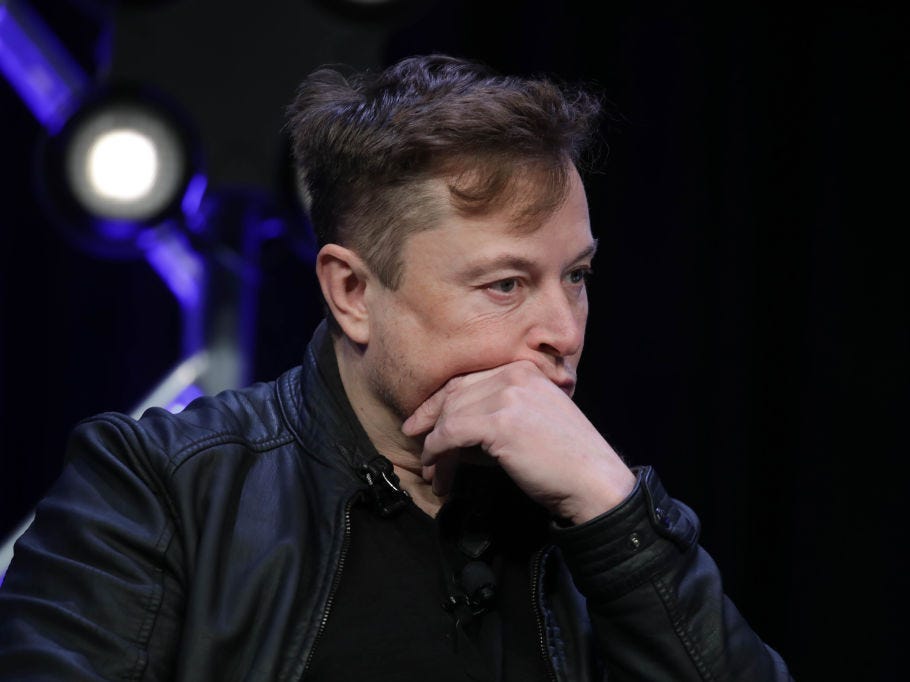- Kathaleen McCormick will be the judge in Twitter v Elon Musk lawsuit.
- Columbia Law professor Eric Talley said her record of siding with sellers was bad news for Musk.
- The Delaware Chancery Court's focus on optics was also bad news for the Tesla CEO, Talley said.
Elon Musk's chances of winning an acrimonious legal battle with Twitter have taken a blow by the appointment of the judge in the trial, a legal expert said.
Kathaleen McCormick appointed herself to oversee Twitter's lawsuit in the Delaware Chancery Court, which followed Musk's decision to abandon a $44 billion deal to buy the social media platform.
Eric Talley, a professor at Columbia Law School who has known McCormick for seven years, told Insider her background meant Musk's chances of winning look slim.
Pleasant, unassuming, and a ruthless record
McCormick has served as chancellor of Delaware Chancery Court since last year. She is notable for previously forcing a buyer to complete an acquisition in circumstances similar to Musk's reasoning for his own withdrawal.
The Chancellor forced private equity firm Snow Phipps Group to close its $550 million acquisition of cake supplier DecoPac Holdings in April 2021 following COVID-19 headwinds. McCormick cited "specific performance" in her ruling to force the deal to be completed.
Specific performance is an equitable, discretionary remedy which, if granted, compels a party to perform a contractual obligation, according to LexisNexis.
"She not only was unsympathetic to them, but even after they had ginned up some resistance amongst their financiers and tried to point to that as a reason they should be allowed to walk away, she wasn't having any of it," Talley said.
The academic saw it as an interesting contrast to a case heard by Delaware Chancery Court's vice-chancellor, Travis Laster, in which he sided with the buyer of a hotel chain in a $5.8 billion deal after it had pulled out using "ordinary course" – something cited by Musk's lawyers in his withdrawal letter.
McCormick's ruling, Talley said, was the less common verdict.
Tally said McCormick offered "a terrific study in contrast" to Musk as she was "one of the most pleasant, unassuming people you could ever meet," and wasn't a fan of confrontation.
"And that could lead someone to think that she's going to be easily cowed when she puts on her judicial robes, and it's just not the case," Talley said.
He argued that McCormick wouldn't be intimidated by "people who believe themselves to be the icons of industry."
Musk's 'optics' not a good look
The setup of the Delaware court itself, Talley said, could also work against Musk. These courts are small, but wield exceptional power, with the ability to settle disputes with injunctions, or specific performance used by McCormick last year.
They also look at "optics", Talley said, and can decide what is equitable under the circumstances, including by looking at behavior.
"My sense is that Musk's brashness throughout this deal is not only undermining some of his already thin legal case about how Twitter breached its side first, but it is also probably making it more and more likely he's going to suffer a big loss," Talley said.
"McCormick may be relatively unflinching and her willingness to say, 'Yeah, you know what, you've made a mess of this whole thing and guess what, the dumpster fire belongs to you. You're going to be required to close this transaction'."
Ultimately, Talley said he was sceptical about Musk's reasoning in any case, and that his pledge to take over Twitter to fix the bots problem meant his argument that the deal couldn't go through because of the number of fake accounts was weak.
"Given the public facts that were available, and the complaint that was filed by Twitter's attorneys, I would say this is a very uphill battle from Mr Musk's perspective."
